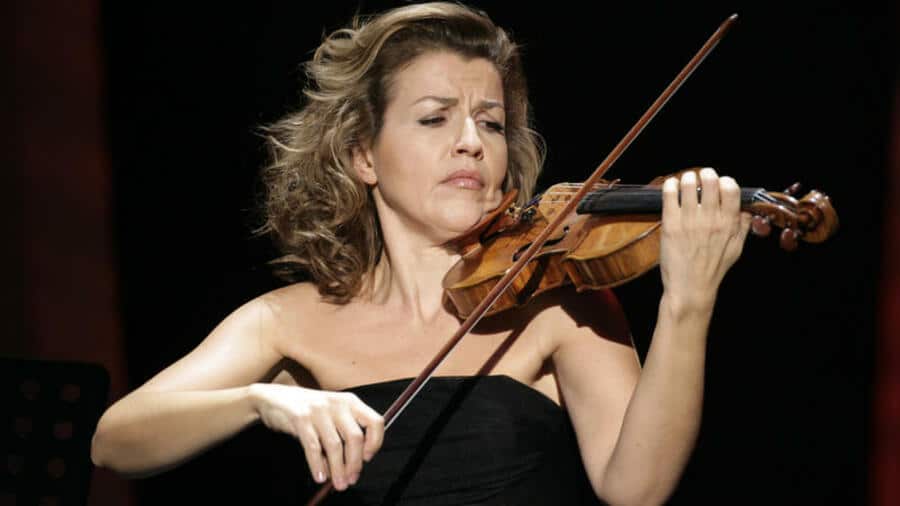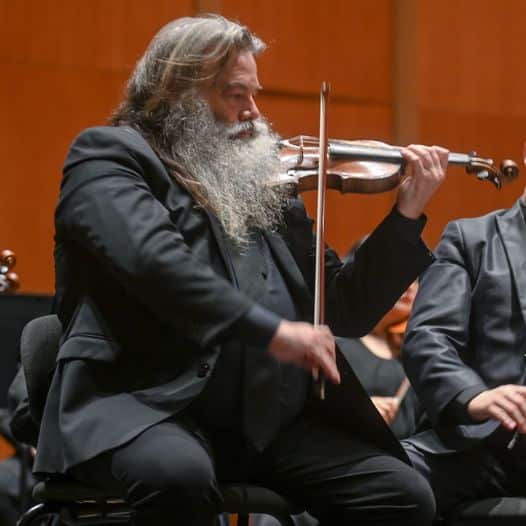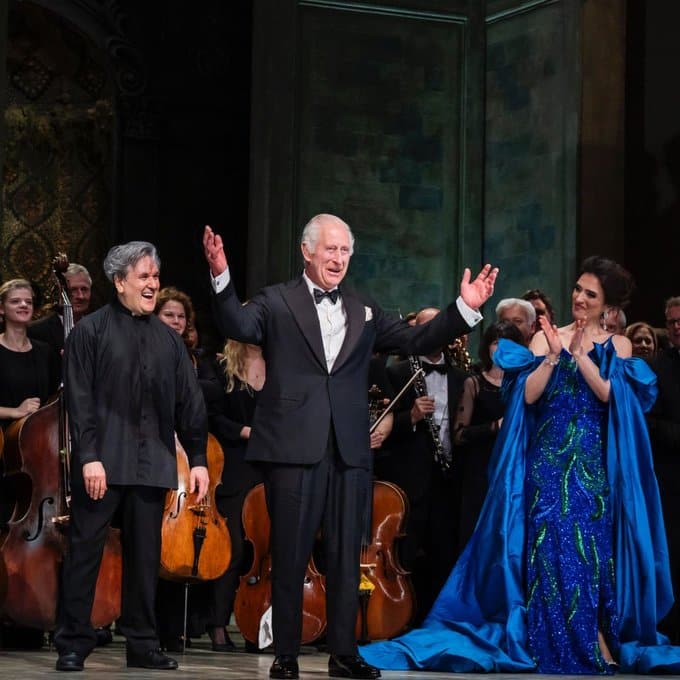Elgar’s Gerontius on period instruments
OrchestrasReview by Christopher Morley:
DREAM OF GERONTIUS 1900 (Winged Lion Signum)
The importance of this new release of Elgar’s choral masterpiece has perhaps led its producers to go over the top in terms of presentation. This is a surpassingly wonderful account, but it is packaged in a way which might appear pretentious.
Okay, this is a period-instrument performance (about which more later) but does that really justify the title “Elgar The Dream of Gerontius 1900”. What next: “Haydn The Creation 1798”; Britten “War Requiem 1962”? The two CDs are slipped into a handsome hardback booklet, illustrated with sylvan scenes which don’t really add any significance (though there is one fascinating shot of the recording in Croydon’s Fairfield Halls), John Henry Newman’s text, full lists of the choristers and orchestral players, biographies of the soloists, acknowledgements to sponsors and donors, a sermonising preface from Stephen Hough and a stimulating introduction by the harpsichordist Mahan Esfahani.
More valuably, there is an illuminating discussion of the period instruments of around 1900 which make up Paul McCreesh’s orchestra of Gabrieli Players. detailing their history and provenance – and including Elgar’s own trombone. Crucially, the strings, largely set up in gut, bring a softer context to the entire proceedings, and this has an impact on the recording level.
Gerontius’ deathbed scene is evoked in a reverent hush, though it does take the ear some time to adjust to this low volume. One bonus is the clarity of the harps as McCreesh unfolds the Prelude with a subtle control of shape and dynamics, and an awareness of wind colours throughout the whole performance.
Nicky Spence, recording his first Gerontius (I reviewed the tenor’s first performance of the role at the Hereford Three Choirs Festival in 2022), brings a huge amount of emotional intelligence, in character as a frightened, vulnerable man facing death, phrasing with a continuous beauty of tone and meticulous diction.
The choristers (McCreesh’s own Gabrieli Consort, plus Gabrieli Roar – young singers from an ambitious choral training programme singing alongside experienced professionals – and the Polish National Youth Choir) bring equal clarity and involvement, heard initially in the “Kyrie” semi-chorus delivered without the disasters of the 1900 Birmingham premiere (no ‘period’ recreation here, then!).
Spence’s “Sanctus fortis” is lapel-grabbing, the dying man desperately reciting his belief in Catholic doctrine, rising above his physical weakness to deliver his final prayer. This is touching and moving, unlike some renditions I have heard, stentorian enough to rival Siegfried’s Forging Song, and the combination of the chorus’ “Rescue him” and Gerontius’ despair is appropriately operatic.
As Gerontius dies, the Priest sends him on his way, Andrew Foster-Williams’ the warm, comforting bass-baritone, joined by the strong chorus, confident in the redemption of Gerontius’ soul.
McCreesh evokes an otherworldly calm for the opening of Part Two, the afterlife into which Gerontius has passed, and where he now meets his guardian Angel. Anna Stephany young-sounding as an Angel should be – Angels are ageless, after all. There is huge, caring empathy from her as she and the Soul engage in conscious communion, and after an almost hysterical Demons’ Chorus she reassures Gerontius in a barely concealed sense of panic.
The young choral voices sound wonderfully fresh as “Praise to the Holiest” is gradually introduced, and when the full hymn erupts choral diction is amazingly clear, and delivered with a perspicacious clarity of line.
After this the atmosphere changes to one of calm, measured inevitability, Stephany conveying this with quiet conviction, before Foster-Williams reappears, this time as a genuinely compassionate, beseeching Angel of the Agony (the world of Parsifal comes very close here).
Spence’s timorous “I go before my judge” leads to a glimpse of God shattering in this reading (to think Elgar ducked at the prospect of conveying it until bullied by his publisher), after which he is now strengthened in “Take me away”, now knowing his salvation awaits him after the lone night-watches. Stephany’s Angel’s Farewell brings a soothing closure, choristers hymning quietly in the background as this wonderful, humane performance draws to its end.






Sorry to break it to you but the 1900 is a running part of the design of McCreesh’s output and his recording of the War Requiem does indeed have ‘1962’ on it! The Fairy Queen has 1692, The Seasons 1801 etc
It’s not pretentious at all: it’s just the date of the work as part of the minimalist sleeve design. I like it.
I heard Ex Cathedra and OAE do an authentic Gerontius at Birmingham Town Hall some years ago it remains one of the most memorable I’ve heard especially hearing it in its home of the town hall
There is a difference of sound
I’m sure the new recording in question will show that very well on CD
The orchestral balance is indeed very good. I note, in particular, that the bass clarinet and cor anglais come over a good deal more clearly than is usual. I agree with this review (the Guardian review was more critical). The Fairfield acoustic has produced yet another fine recording.
Ok. I’ll get it. Sounds like a winner – and maybe this will be the recording that unlocks a work that has so far been impenetrable to me.
It took me a while and now it’s one of my favourite pieces. My trick was to listen to the first part over and over on headphones until it was ingrained. I find this a good way to understand pieces but it so far has failed with anything by Delius.
Well, this looks interesting! Although as a seasoned Elgarian with enough recordings of Elgar’s Dream already in my archives from the likes of Sir John Barbirolli (x2), Adrian Boult, Benjamin Britten, Sir Andrew Davis’s masterly performance on DVD, Mark Elder, Vernon Handley, David Hill, Donald Hunt and Simon Rattle, I’m not sure I’m interested in another one, to be honest. This sounds nothing more than a gimmicky, novelty, approach. Although I have got other very impressive CDs of Paul McCreesh’s period instrument re-creation delvings; but they are from the early music repertoire. I wonder what compelled him to do the Elgar? Only one of the soloists’ names are familiar and I wasn’t aware that Mssrs. Esfahani and Hough are in any way Elgar experts, fine musicians they may well be.
In more recent times, I witnessed an immensely moving Elgar Gerontius with the late, great, Sir Andrew Davis at the helm of the closing concert of the 2022 Edinburgh Festival. Maybe, a quick listen on my Amazon Music App or YouTube might satiate my curiosity.
You come across as a real jerk. Parasites like you make an entire art form look bad.
Why didn’t you hold off commenting until you listened? Your informed opinion on the actucal performance could be interesting.
Despite the sleeve-notes’ puffery and hype about the period-instrument expertise of the orchestral players, only about a token 10% of them are actually ‘Gabrieli Players’. The other 90% are the superb Britten Sinfonia, who, by rights, ought to be separately credited for their wonderful playing.
A sickening disease. Perioditis. Very contagious, very invasive.